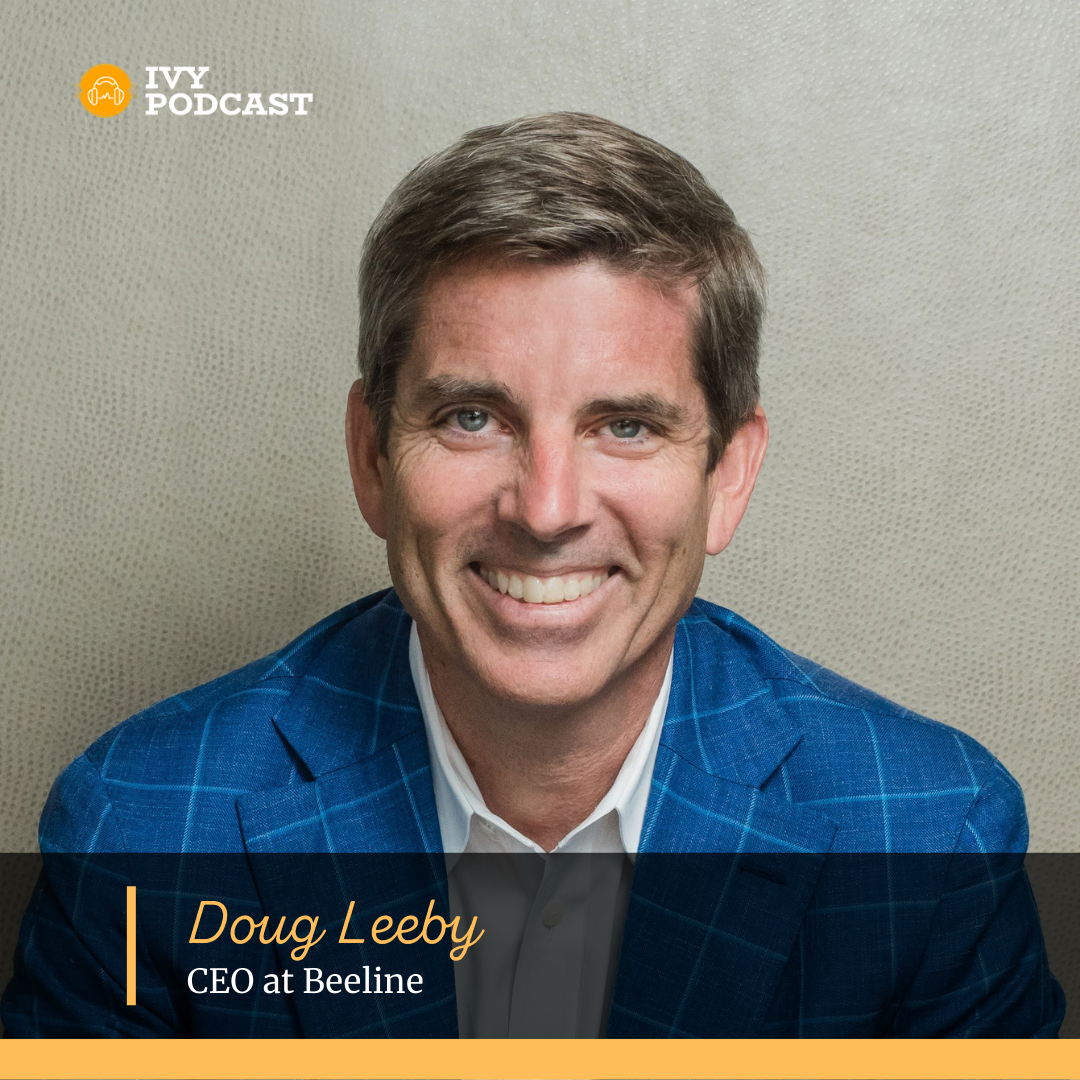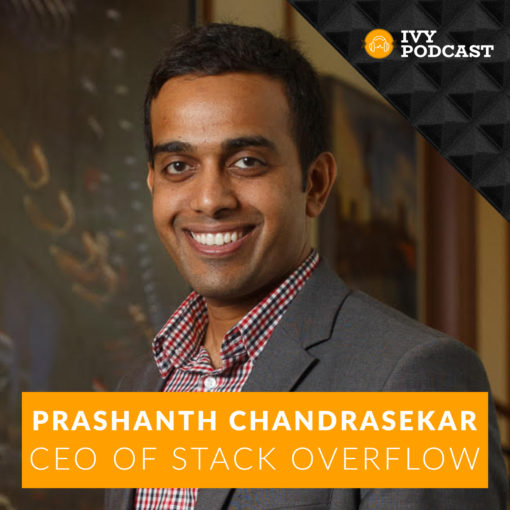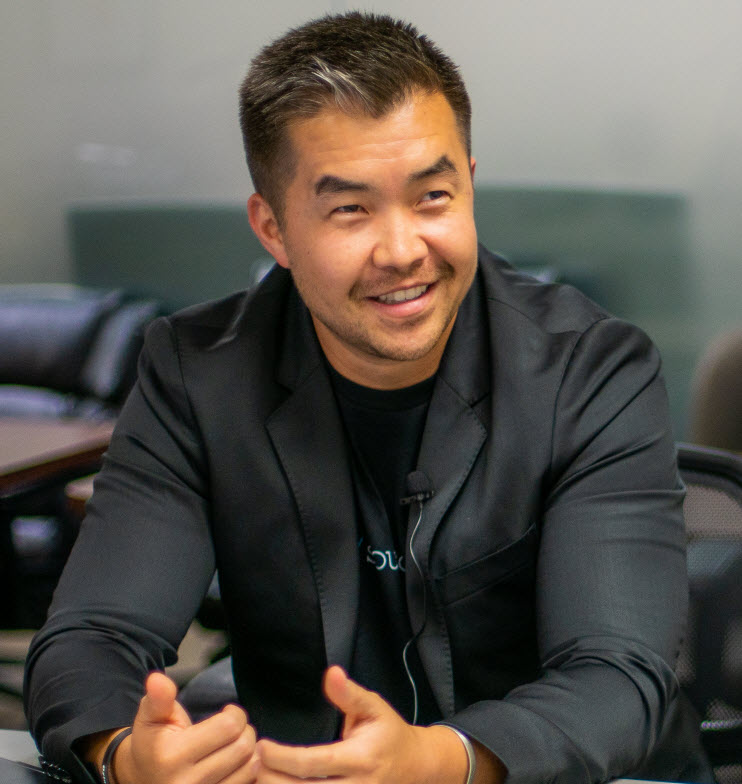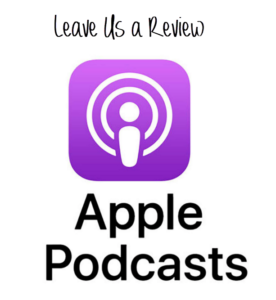
Doug Leeby is the CEO of Beeline, a global SaaS technology company and solution provider for sourcing and managing the extended workforce. With offices in the US, UK, Australia, and the Philippines, Beeline serves the world’s largest and most respected brands by managing over $40B in contingent workforce spend. Recognized as an industry innovator and customer champion, Doug has led Beeline to become the largest independent provider of solutions for managing all categories of non-fulltime talent, including temporary staff, professional contractors, service workers, consultants, project-based workers, and independent contractors.
Doug is in his 18th year at Beeline and is based at the company’s headquarters in Jacksonville, FL. He has been included on Staffing Industry Analyst’s list of the “100 Most Influential People in Staffing” every year since 2012. Doug believes strongly in culture and through his servant-minded leadership has created a corporate culture built on trust and diversity. Doug attended Vanderbilt University where he earned his BA in History and his M.Ed. in Human Resources. He enjoys learning, interacting with interesting people, the outdoors, and any and all time with his family.
Episode transcription:
D: Hi, it's Doug Leeby, CEO of beeline. J: Doug, thanks so much for finding time to join us on the Ivy Podcast today. You are my first episode of 2021. All right, cool. No pressure on you. D: Yeah, no worries. I’ve got to set the right tone for the new year. J: Can you tell us a little bit more about your background, where you come from, your career path, and then I want to spend a couple of minutes talking about your current organization. D: Okay, sure. I've been at Beeline for 20 years, I just celebrated my 20th year with the company a couple of weeks ago. Before that, I got out of school and I went into consumer products, so Pillsbury and then Agora. So I spent 10 years there, and then I made the move over to this industry and have been in there ever since. J: That's exciting. So tell us a little bit more about Beeline. What problem are you guys solving through products and services? D: Go back to when I started, which was basically 2000, you'll recall, you may not, you're young, but Y2K was a big problem. And everybody was concerned with the fact that the ball was going to drop and all IT systems were going to crash. And so what that did is it afforded the staffing companies a great opportunity, because there was such demand and very little supply. So obviously staffing firms made a lot of money in that timeframe. And then Y2K happened in the big nothing, so they had a lot of, let's say disenfranchised procurement departments realizing they paid a lot of money that maybe it was out of market rate. So enter what we call VMs vendor management software, which in essence leveled the playing field and put job descriptions electronically to a preferred supply base and then made them compete. So in essence, it was a cost savings play. At least it started that way back in the early two thousands. And if you think about an applicant tracking system, which in essence sits at the enterprise or the company level and helps people go find candidates to hire that's in essence, what VMs is vendor management software sits in between the large enterprise and the staffing firms, and basically just relays the requisition over to those staffing firms and they submit those candidates. And it's an opportunity for large companies to, to find talent, always non full-time talent though, whether that be a contractor or a 10 99, or even project based work. So our solution in essence, connects talent with large companies, but that talent is always on a temporary basis. J: Oh, that's exciting. And I personally, you know, dealt with different, different types of VMs systems. When I was incorporated, where organizations were actually, you know, we would start a project management office for example, and we would have this project based needs. For a lot of contractors, consultants, you know, project managers and so forth. And, you know, before any VMs that actually was implemented, it was kind of chaotic because we were dealing with a lot of different staffing agencies and we're getting submissions and resumes from left and right.So I can definitely see how, you know, a product like Beeline can definitely help streamline and organize a lot of these operations from that standpoint. D: Yeah. You hit it. I mean, it was cost savings. It was visibility. It was efficiency and then compliance. Those are the four areas that, you know, we address for the enterprise. J: Right, right. Absolutely. So with building this product, I would imagine that innovation is at the core of everything that you guys do. And it's a topic that's, you know, I'm extremely passionate about. One of my favorite professors at Harvard, still a very good friend, Stephan Tonky, he's specialized in that. And he wrote a couple of books on specifically experimentation, experimentation matters and experimentation works, but the overarching theme is innovation. And a lot of the guests that I interview on the Ivy Podcast, one of the things that we always talk about is, you know, building and fostering that culture of innovation. Tell me a little bit more about that. How do you go about building a culture at Beeline? What strategies or initiatives that help you to accomplish that? D: Well, I appreciate you saying you've got to build a culture because for me, culture is everything. It's the bedrock of whether it's innovation or even sales or implementation operations. Why are they good for us? That's absolutely everything. So, you know, I don't necessarily subscribe to, I think everyone's out there trying to say we're the most innovative and that that's fine. A lot of marketing revolves around that. We're much more circumspect in that manner in terms of trying to solve problems. So I think 20 years ago, VMs was highly innovative, right. For the reasons we just articulated, but, well, what we have to continue to do is figure out what are the problems that our clients are suffering or that the market's suffering, because sometimes the clients don't know that they're suffering. So, you know, how do you get ahead of the thought process a bit and start to contemplate that. And I was very involved in that for many, many years, and now I'm much more involved in terms of trying to figure out where I think the market should go. For the functional innovation, I finally basically realized that. You know, the youth is going to understand this far better than I, so I understand what problems needed to be solved. But if I put that in the hands of the millennials or those even younger than them, they'll find the way that they used to be me. That's not my role anymore. So in terms of how you build a culture, I think we have to keep focusing on what are problems that we solve and then celebrate those, so that people understand that the reward and the recognition comes from solving them. It doesn't always have to be a big groundbreaking app or anything crazy. It's just got to solve problems. Now, having said that there's still a tremendous amount of opportunity for us to innovate, obviously with machine learning and AI. And you know, you gotta say that in big data and a bunch of data science terms, to get the click in the box and be a technologist, but once you get past that, I always go back to the soul. Well, what are we really trying to do? There are some really interesting things that we're doing, but back to your question, you know, one of the things I've done, I don't do it every year, but every few years I'll send out, and this came from Forrest Gump, but stupid is and stupid doesSo guys just tell me, what are we doing? That's stupid. Right because we had a lot of new faces every year. It's like, I'm sure I'm stuck in thinking of ways in the past. And like, you must come here and say, why in the heck do they do that? And you'd be amazed by it. Like some of the stuff I get like, yeah, that is stupid. Why? And we have been do that for 10 years and I think that's the way you reinforce the culture that, you know, we've got to keep challenging ourselves and trying to figure out, is there a better way and not just sitting by with the status quo. J: Right, right. Absolutely. No, I love that. And I love those examples. And at the end of the day, it sounds like it all boils down to what problem are we solving for our customer and how is our product going to make our customer better? Because at the end of the day, it's, you know, nobody cares about your product. Nobody even, you know, as they say, even your mom doesn't care about your product. If your product doesn't make your customer better. I love that. I recently read a blog post by one of the VCs, right? Where he talks about this concept of a Super Mario, it's kind of Super Mario marketing. So to say, where basically your customer is this little Mario that runs around, you know, just collect whatever the coins, your product is that little flower that, you know, if the Mario gets that, you know, it becomes, it grows up, it becomes bigger and just start shooting things and kills analogy. It was very simple and it's, you know, it resonated well with me. And every time I meet with my teams, or our customers, we'll always kind of use that analogy and focus on how can we make you better? Our product actually empower you. So that's exciting and definitely resonates with what you're talking about from that innovation standpoint. D: Yeah, agreed. I think it happens constantly. Like if you're on it from a product perspective and in a thought leadership perspective, you're always innovating. But again, I think sometimes people put too much weight into how do we become the next Uber or fill in the blank. It's like, that's a one in a 10 million, right. That would be the best of what we do and bring innovation. And so, I'm sure, you're familiar with this one. But I always loved Henry Ford's notion about, you know, if I asked my customers what they wanted, they would've said a faster horse. And so we talk about that a lot. Like, I do need to give you a faster horse, but I also need to be working on the automobile. And once I get the automobile, I gotta be working on urban air mobility or whatever it is. Right. But so we've gotta be ahead of where our clients are. Cause they've got day jobs and they've got outcomes. They're responsible for whatever industry. So the responsibility, I think, lies on us. To be pushing and moving ahead, but still not losing sight of the important day-to-day features of functionality that we need to make their lives better. J: Right, right, right. No, absolutely. I love those examples, which leads me to the next question is when, just like yourself, you know, I'm very entrepreneurial. I've been on the corporate side, founded my own companies, but it's always kind of the premise behind this. You know, the different ideas and trends that really excite you these days. It doesn't necessarily have to be in your space in the staffing or VMs, but curious to get your take on what are you extremely passionate about these days? What do you think is the next big thing? What are you looking to invest in or perhaps implement in your organization or for yourself? D: Okay. Fair question. There's a lot there. So I think I'll go to one of my principles is that talent is talent. Period. Right. And I think in our industry too much, we focused on full-time and non full-time and what I always say is, look, when you come as full-time colleague or a temporary worker or contingent worker variable, extended workforce, whatever we want to call, whatever Monica we latched on to, at the end of the day, we're hiring talent to produce something. It could be a service or product, and it's just the government tax is differently. So that's why we categorize it. You know, one may be variable one, but at the end of the day, we have to recognize, at least in my opinion, that it's all about people. And I think we've gotten too far into the. Here's the different workflows. And in my mind with the real problem we're trying to solve is to match you with great talent that will produce those great outcomes. So what am I passionate about the standard models right nowб to go through staffing firms and it's a great model and it works, but there is an opportunity to go directly to talent. Should it be a hundred percent? Absolutely not. Staffing firms have a very important role in the ecosystem, but there are certain jobs in certain geographies where it makes a ton of sense to create a private talent pool and to tap into that on a variable basis. So that's an area that I feel strongly about frequently folks in our industry talk about total talent management. And I do feel like that's a lot of marketing talk. Is there legitimacy to the notion there is, and it isn't so much a software challenge. It's a political challenge within the organization. So you've got HR for the most part that owns the full-time workforce, and then often procurement strategic sourcing it. You know, other factions will own the, the variable side and. So it's difficult to think in terms of how do I optimize, and this is what I call optimizing your workforce, less about total talent management until I really get tight on the full-time side and then tight on the non full-time side. So what I challenge our clients and the industry to do is get your arms around your non full-time side. Let's properly classify them. Let's start to look at alternative channels, sourcing like direct sourcing. And once we've done that, then we can look at the data and start doing some of the neat things. So the other areas I'm passionate about is the resume should be dead. It's not, but it should be way past that. And we have skill attributes we can pull out of people that can manifest in this software. Job descriptions are terrible. And yet they're the bedrock of what we put into the VMs, but we wonder why staffing firms take time to store. So why the MSPs, or the internal program officers have to basically distill down what the job description is to actionable attributes for the staffing firms. It's because they're no good and we're a little bit lazy, frankly. We load them up and we just off to the races. So there's a lot of work we can also do through the machine learning of understanding. A project manager in Fort Lauderdale to Jahn may be different to what one is for Doug up in Jacksonville, right? The system should know that because we've done enough hiring to understand and discern what that means to you. So, you know, reinventing the way we assess people, the way we match people, the way we even understand the buyer, much less the organization. These are the things that we're focused in on from an innovative perspective that I think hold great promise and really, really fun. J: Well, that's super exciting. And I love what you said about, you know, the resume being dead because at the end of the day, everything is over overhyped and overrepresented every resume, you know, for valid reasons. But at the end of the day, it's, you know, it's not something that's really gonna. It may be, it may get you in the door, but you know, as far as you actual, you know, abilities to perform your abilities, to build that relationship with the person you're interviewing, I think it goes way beyond what's on paper. So that's super exciting. And then the other piece where you were talking about, I think you mentioned direct sourcing where an organization. Can actually tap into, I guess, the talent pools directly and try to source directly from there for an organization, I guess, small to medium size, like a startup, what would you recommend as far as them taking advantage of this particular concept and going directly to the talent pools? And is there a lot of tools available out there? What's the best route for them? D: Yeah, look, I don't know about the best route. I know of some, we don't do a lot of businesses with the smaller firms or the startups. Maybe at some point, but we're heavily focused on the enterprise, but I have some degree of understanding of what's out there. So, for example, Crowd Staffing is a company based out of San Francisco and they do a really nice job almost providing VMs like capabilities, but with an array of recruiter. So in essence, you're perhaps staffing, right, and kind of leveraging the same principles that you would with creating a private talent pool. So they work on the smaller companies. And, I'm sorry, I'm blanking. There's some others that are well-suited to come in and basically like a talent net. They could come in and basically just set up a private talent pool for you that you can begin to reuse over and over again. And I think there's a real need for that demographic that you described. It's not one that we've tapped into right now, but I know the need is out there. And to the extent that, organizations can effectively go out and find specific talent and create massive talent pools and then maybe micro talent pools. I think there's real opportunity. One of the things I tried to push early on was get less married to this notion of a private talent pool and just tap into a public talent pool. But a lot of my clients came back and said, well, I don't want to share my talent. I don't want to be working with other customers, but you don't own that talent. You're not even, even full-time people you ought to open up. Your horizons a bit and just have a big public health pool that anybody can source through and trade off, et cetera. I think the industry is going in that direction, but I think you'll also see more niche talent pools. And so there'll be strong providers that come and say, look, we just have acumen around data scientists, or we just announced the project, that we're doing right now, the diversity talent pool with the mom project, a great organization. So they in essence are going to fuel the diversity talent pool for us. So that's another channel that I could take to my clients. And so I think you'll see a pop up of a bunch of niche firms, which makes a lot of sense. And I think you'll see staffing firms actually start to migrate and say, Hey look, the world's changed a bit. We're really good at this, this and this. And so we can build a public or a private talent pool with, you know, our sort of resources. That's just my thought. J: No, absolutely. It makes perfect sense. Especially, you know, creating these little expertise areas or domain areas, you know, where you specialize in. Because at the end of the day, that's how you build a relationship with a potential candidates that if you essentially the practitioner or you, you specialize in that space, if I'm a candidate, I'll probably be more lenient to talk to you because, you know, what it takes, you know, the intricacies of getting the job in this space or succeeding in a career versus If I was in it and you were in finance probably would be, you know, harder for me to build that gap, you know, build that bridge with you. So that makes perfect sense. In your previous response, you briefly mentioned some opportunities around leveraging advanced technologies, such as machine learning, artificial intelligence, and so forth. And we all know it's a buzz word, but it's not a new concept, it's been around, but they're reinventing different industries, you know, information technology. In general, how do you think these advanced technologies will impact your industry from innovation standpoint? And more importantly, I talked to a lot of executives and a lot of them definitely want to, you know, explore that. But the bigger question becomes is what are some of the best practices when it comes to actually leveraging and implementing such technologies? We're curious to get your take on that. D: I think, first, we do have to be somewhat careful and understand how real is it. Whatever this solution is, it's AI driven. I see a lot of AI driven platform. Like what does that mean? Other than, you know, you're trying to look modern and cool and sexy. And I get all that. There's a place for marketing, but, you know, in my opinion, it all rests on data. Like you've got to have a massive amount of data and that's something that I take very seriously and we do have a massive amount of day. And I'm not trying to sell her. I'm just, you know, to back up what I believe. And we've got about a half, a trillion dollars of spend over the last 20 years that we can draw off of, but I'm not satisfied with that. Like, I think it's important to go out to external sources as well. Some folks think that my data is enough, you know, within their domain. I don't believe you can have too much data. So I'm working with other partners to augment that so that we can then go in and start to discern patterns. And sometimes it's exploratory. You know, I think in our industry, the big buzz as well, we've got a proprietary algorithm that matches candidates. Like everybody has a proprietary algorithm. Supposedly I still haven't seen it work that well. And I still think we have a lot of work to do. You brought up really what you were saying, the soft skills, and that's really, really important. BMS is applicant tracking systems resumes. They do a nice job looking at the hard skills, each skill attributes experience, et cetera, but we still need to have a better understanding of how well that individual will fit in your organization. There's psychometrics that can help with that, but you don't typically see them integrated with some of the solutions. And these are some of the things that I'm looking at. So, you know, look to be Frank, I'm not gonna sit here and tell you that we've conquered the matching and that stuff. But what I will tell you is we've discerned some really, really interesting things in buying behavior. I don't want to go into too much detail on that one right now because it's in its nascency and I'm just starting to work on it in beta with some of my closest clients, but we're coming out with some really neat stuff that shows that there's still more savings to be gained because some of the buying behavior, we can point to the data isn't in line with what you want it to be. We can help that. So I believe the VMs has to be more of. What I call concierge software. It's fine that it does workflow, but that that's not enough. It was good 10, 15 years ago. Understand me better than maybe I understand me understand how I buy, what I'm doing, right. What I'm doing wrong, where my biases are, where I've had successful matches, et cetera, and then present opportunities for me to mimic positive behavior and reduce negative behavior. So when you asked me about AI and ML, it's much more database. That's looked at some exploratory work that says, where do we see behavioral clusters and what can we do about them? And if there are big gaps in terms of positive behaviors versus negative, how do I manifest that in a way that's elegant through the UX and lead someone gently to make better decisions for their organization? And I know I'm talking a little bit high level just because I don't want to get into too specific details until we launch this in the next three, four months. But these are the things I'm focused on right now from an AI and ML perspective. And again, I think AI, you heard people talk about artificial intelligence and some people talk about augmented intelligence. We would favor more augmented intelligence. I still think people matter at this point. I think they'll always matter. I think there's a lot of information I can give you, but I would be loath to say, wipe my hands and just let the machine tell me that Jahn's coming to work on Monday. And he's the answer, all my solutions and maybe I'm old fashioned, but that's where I am right now at least. J: Yeah, that makes sense. That makes perfect sense. And especially when you talk about that, you know, the human element that was always will always be present there it's, we're probably, you know, I don't want to say light years, but away from where the actual, you know, the computer generated algorithm can really predict certain behaviors or be able to effectively select a particular candidate for a given role. I think there's that human element that is very strong. It's, you know, certain parts can be automated. But it's definitely to your point something that's, you know, we'll be present there for a while. D: Yeah. I think our approach is just to manifest information that you look at and say, that makes a lot of sense, but you still have authority to go that direction or not, as opposed to just taking it away, that responsibility altogether. I think that's a bit dangerous right now. J: For sure. That makes perfect sense. So to take that a little bit further with, you know, you've been a thought leader in this space and, you know, obviously spent quite a few years in staffing in general. I want to go back to some of the basics, when it comes to actual interviewing, let's take a case for your organization, for Beeline. When you know, a particular candidate comes in. You're the CEO. They probably go through multiple rounds of interviews, technical assessments, and so forth when they get to the top. And they said in front of Doug, and there's an interview, give us a glimpse into that. What does the interview look like? Do you get creative with it? Do you keep it pretty traditional, but more importantly, what are you look for in some of the responses? D: Okay. That's a good question. I think you're right at the end of the day. Sorry. Excuse me. One second. I did bring my dog to work today since no one's showing up, she's actually eating this magazine with my face out. So she's trying to destroy it and has a cover. And I'm not that arrogant. It just happens to be here. Cause we moved offices and she found out I won't typically have pictures of myself around. The interview question, look, you're right. Like by the time someone gets to me, they've been vetted. And I've got nine principles that I've put in place. Back in 2010 that we still hold true today for the organization, but it's also important to vet people against those nine. So what I'm really looking for in our dialogue at that level is authenticity and introspection. It did, it's just absolutely paramount to me. And I've often said to folks, look, I don't need a bunch of Renegade Cowboys or A-plus players. I'll take a great collaborator with B plus skills any day over those folks. Now I happen to think there are players that also show great emotional intelligence to know how to collaborate well. So I think we've done a great job finding those people, but you know, our conversation is gonna be more like Jahn, just tell me, what you're not good at and believe it or not, that's not that easy for some people. So then I'll reframe and say, well, let's take a different path. What do you suck at? Like, what are you just, what do you not enjoy because then I can start to get a sense. And it's not that I'm trying to weed you out. I'm trying to make sure that we've done a good job, figuring out if we've properly cast you in the organizations. And there've been times where I'm like, look, honestly, we've done a good job, culturally. You're a home run here. That role, maybe not make as much sense as we thought this role could make more sense. We need to understand transferable skills and how you've addressed failure in the past. If you want to blame that doesn't work very well for me, if you point that finger internally and take a lot of accountability responsibility, you can do really well in the organization. Also what do you want? You know, I'm just trying to get a sense of who the person is and you know what they're looking for. And if, you know, oftentimes when we do our surveys here, things like, well, you know, there's not a rigid career path in here. I'm like, Exactly. I'm not looking for that. I'm looking for a bunch of entrepreneurs to get people that make their all cap and have a way of showing transferable skills. As I just mentioned, do great with leadership or not, you know, that's okay, but not everybody has to be a leader, but manifest those skills that are going to feed your soul. And then those opportunities will start to present themselves. But the biggest thing, you know, that I talk about here is direct communication and assume positive intent. And if you can do that, you're going to thrive. And if you can't. Then we've done a poor job that you miscast and you know, we're probably gonna have to walk out the door pretty shortly. Cause people can become cancerous around your culture's too dang important to me. J: Oh, I love that one thing that really stood out is the positive intent. If you don't have that outlook onto, especially when you're collaborating with others, I think is going to be very challenging, regardless of your skills. And if you don't assume that positive intent it's, you know, something that I'm working on very hard on that as well, especially when, you know, you move from meetings to meetings, you move from projects to projects you deal with different personalities. It's always something I love. I love what you just said about it. D: It's pretty sad because when I do our surveys, typically what I do. Thing that's written about the most, what people love about the company, as they say, we love that assume positive intent principle. And to your point, we get very busy and sometimes we create the ozone stories and like, well, Jahn said that because he's just mad about, or in the email, I completely misread it because Jahn and I had a little tussle the other day, as opposed to, you know, look, man, we've got to tell us no big deal. You said you got young kids, they made life a little bit tough. Last night, you came to work tired. It happens all the time. So I think, you know, you've got to have confidence to assume positive intent. I always tell people if you want to come in here and bitch about somebody for five minutes, you get five Mr. Bench, then I'm going to say, what did they say when you told them about how you feel? Because if you do a good job hiring, and I think we do, we hire great people and we all have the same end game. We want to be successful and put food on our family's plates. So no, one's trying to take you down and it's so arrogant. To think that I would spend my time trying to take you down. Like if you actually think that, then you think the world revolves around you and sadly it doesn't. So it's like, get out of your head, recognize it ain't about you and go have a conversation. And so look, I do a lot of coaching on that and I have to, to your point, look inside the last, I am not practicing what I preach. I brought some baggage into that scenario. And so I'm challenging myself all the time. J: I love that. You know, I love the aspect of making a conversation and really allowing the candidate actually ask you questions and almost a two way interview for them to be able to assess, you know, who's the leadership pool, who is leading the organization? Who am I joining? I think that's extremely important and I love what you were saying in terms of really opening up about that self-awareness aspect in terms of, are you aware of your surroundings? Are you aware of your weaknesses? And more importantly, almost if I was to call your сurrent or previous manager, what do you think they will say is your weakness now? Were you also aware of what others think that you're not good at? So I think those are great points you're making when it comes to the actual interview. I love that. For sure, we can spend the whole hour talking about this, but just moving on from kind of your outlook onto the current state of the industry, as far as the most in demand skill sets out there that are very hard to find. I'm curious to get your take on that. What do you see from whether your clients or the industry research perspective, which ones are the most challenging? But the reason I asked that question is because good portion of our audience are early stage career professionals, second year MBAs. And a lot of questions we get are from our guests perspective. If I was to choose a particular area, let's say within it, or would that be in the current situation? So curious to get your expert opinion on that. D: I mean the high skills are definitely, and I tease you, say, it's all thing, digital transformation, which is a big moniker to me in a lot of things, but, you know, it seems as Agile methodology, Scrum masters, Cloud microservices, anything in that realm is super hot. And, you know, we're seeing the rates increase precipitous on those positions for good reason. And look, I'm going through my own digital transformation within Beeline, you know, we need to be modernizing ourselves continuously. So. I understand the question in the client's context, but we suffer from it as well. And unfortunate that I got several offices. So, you know, if we can't find somebody Jackson, we can find somebody in Denver or Philippines or over in Europe. So that helps, but there's definitely a high demand for those skills. And I think that lends itself well to the variable workforce as well. I often talk about data scientists, for example, there's a lot of neat I have in that department. But hiring a full team of data scientists is very expensive and hard and difficult, especially in Jacks, less. So maybe in Denver. And so, you know, I do some outsourcing or I hire contractors for that type of stuff. So those are the hot skills that we ourselves suffer from and that our clients are suffering from as well. And that's why I said earlier, if I were to start a staffing firm, I would think about focusing in a big way, niche in digital transformation and creating a series of talent pools that I would then share with people and let them go directly and maybe change the model from the traditional one today and, and have somebody have access to that. So that's what I'm seeing. And that's how I would think about it. Absolutely. I couldn't agree more with you from that perspective. You know, transformation is, you know, whether digital people or the business transformation in general, I request definitely, you know, specialized skillset, whether you're in data service security or cloud engineering and so forth. I think it definitely makes sense. That'd be another huge one. Yeah. Sorry. I shouldn't, that's probably even higher than the other ones. J: Yeah, absolutely. Absolutely. It makes perfect sense. So when it comes to that specific, very in demand, hard to find skillset, what strategies help you attract that type of talent to your organization? What have you tried? And that did not work. Yeah. Share with us some of the experiences there. D: Look, I'll circle back to where we start and that's culture is everything. And I sometimes tell this story years ago, I watched in the Apple store about my daughter, the iPhone or whatever, you know, so the guy was sending the receipt to me and I said, just doug.leeby@beeline.com. And he looked at me, goes, you worked for Beeline. I said, yeah. And he said, it's funny, I moved from I don't remember where, and there are only two companies I want to work for Apple and Beeline and no offense, Apple was number one and I got the job. It's like none taken. That's a huge guy, but he's interesting because you know, generationally, that's very different from how I grew up and it was all about Glassdoor. So he searched for tech firms in the area. High ratings was able to dig into the culture, which again, I think is really important because at the end of the day, people want to matter. They want to learn, they want to grow. They want to feel supported. And so we have a lot of referrals. I do have an internal recruiter who actually, two of them were very, very good, but I know that they rely heavily on our culture, on our Glassdoor ratings and having them talk with folks in the organization. And as I said, a lot of people come into us from, from our own peoples like this. We don't pay the highest amount, but you know, it's a special place in my opinion. And I'm sending out notes. I always send anniversary and birthday notes to people, but if you've been 15 years or more, I send them out to the company and I probably sent out 30 this year of 15, 20 years or more. So I think, you know, retention in 10 years, a big issue. And there's a reason behind that. And it is about respecting individual and creating an opportunity to flourish. And again, You're not going to become a millionaire here. There's, I'm sure you've got to San Francisco and double your salary is not a problem. But if you're looking for a little bit more soul fulfillment and developmental growth and just a place where you feel really supported with a great team of people, that's how you attract people and more employee. That's how you keep people, I think. J: I love that. You know, it's simple, but oftentimes overlooked component of really, you know, developing that strategy to attract the top talent to your organization. You know, it's not necessarily having all the best products in the world or, you know, fancy offices and all of that great stuff. It all boils down to the type of culture, the type of, you know, the people that you deal with on a daily basis, who's at the leadership. So that's very important. I love that you highlight that from that standpoint. Doug, in general, what, uh, share with us, what are your sources for information? What are your sources for learning? Whether it's a blog that you subscribed to, or it's a Twitter profile that you religiously follow? Just curious to get your perspective on your content diet perspective, where do you consider your information from. D: I think of a bit anemic in this realm and I'm gonna embarrass myself and maybe this is a function of age, but I'm even embarrassed to do this and tell you that I don't listen to a lot of podcasts. So it's probably an area for 2021 I need to look at, but I read a lot, got great avarice when in terms of reading books, I should say listening. Cause most of my stuff was done on Audible at this point, and then paper. So I'm like old school man. You need someone more hip younger, Florida talk about the podcast and the Twitters and all that stuff, or, you know, sort of profiles. But really for me, it's just staying current in terms of what's happening in our industry with some of the, you know, things would come out from an industry perspective like SIA or a lot of the bankers that, you know, were in the private equity world. We're owned by private equity. A lot of the bankers I talked to and they keep me apprised of what's happening in the markets and really an HR tech. They do extensive research, which is very, very helpful. And then I just have a wide range of interests in terms of, um, the books that I read. So some are business warnings, but many are not, but that's predominantly. J: Great. That's awesome. No, I love that. There's absolutely nothing wrong with that. I know these are the new ones for the next quarter as well. I've already noticed a Tommy habits. I've got that one as well. Yep. It was highly recommended. So on that note, what are you currently reading? And is there a particular book that you always recommend to others? And if so, why is that? D: There really isn't there. If I think about this, there'd be four categories. Maybe that I break my reading down into one would just be fun and escape. So the bread doors, you know, sorta assess them, CIS stuff like that. I love that stuff. The next would be history. I'm a history major. So I love all things history. I just finished a book on Churchill, which was fantastic. The book that Isaacson did on Leonardo da Vinci was phenomenal. You know, just, I love that kind of stuff that next web say business. So your blue ocean, you know, leadership, there's a great book. Marcus Buckingham put out Nine Lines of Work. If you'd asked me one of the books I've recommended the most over the years, it would be First Break All The Rules. And you've probably never heard of it cause it's about a 30 year old book, but it was Marcus Buckingham and he really started to tap into culture. And back when I was getting my master's in HR, this was a top of mind for me and the guys just nailed it. And he's done a lot of research around the Nine Lines Of Work, which I think is super fascinating. Then the last one would just be bestsellers, um, you know, Eucated, Hillbilly, Elegy, Untamed, stuff like that, just to keep current. So, a wide array of things. So I'm actually reading several books right now. One is by way of deception. It's an ex Israeli Mossad. Officer's sort of a telltale. He did this back in the eighties, so it's a bit data, but it's pretty fascinating, and I picked up another book on Churchill just because I loved the splendid in the vile so much. And then, I just finished killing crazy horse, which is all about the well, the horrific treatment of the Native Americans, back in the late 18 hundreds. So, you know, kind of across the board. J: Oh, you're all over the place. D: Hey, it's all very diverse, you know, reading profiles, which is, well, I'll tell you a funny story. I read a book years ago and this guy who's kind of full of it, but I didn't know at the time. And he said, CEOs on average read 50 books a year. I was like 50 books. I read like 25 I'm way behind. I set this goal. And I learned that that's not actually true. I think he was referring to Bill Gates who was fair enough. I'm no Bill Gates. Right. But I actually did 52 that year, and haven't kept up to that, but Audibles made it a lot easier cause I can check that speed up to 70 or 80% is still fill up in San what they're saying and ripped through a lot more material that way. J: I love that idea. I love those recommendations, Doug. I know you're very busy guy. You gotta go. You gotta go plan for 2021 and the next period. Can’t thank you enough for your time today. It was a very short and very powerful conversation. I personally learn quite a bit. I definitely look forward to staying in touch with you. Perhaps we can do another episode later this year and see how much has transpired. D: Anytime. You're a lot of fun. And I enjoyed getting to know you the last couple of weeks and doing this with you as well. So I wish you the best of 2021. J: Thanks so much, Doug. Likewise, thank you for listening to the Ivy Podcast. Be sure to subscribe to our RSS feed on IvyPodcast.com and all major podcasting platforms like Spotify and iTunes. As always. If you enjoyed this podcast, please give us a rating on iTunes.
Welcome to Ivy Podcast! On this Executive Leadership Podcast we interview top executives from Fortune 500 with a focus on strategy, innovation, negotiation and everything about leadership.
Our Podcast for Executives features Thought Leaders who share practical insights for effective leadership, continuous innovation and strategy execution.
Ivy Podcast is a rapidly growing Executive Podcast, which covers topics like Hiring and Retention Strategies, Talent Acquisition, Innovation, Digital Transformation and much more.
On this Leadership Podcast, you will find conversations with the most accomplished executives from Fortune 100 companies. We aim to cover a broad range of industries and create a learning platform for the most ambitious and high potential professionals who are looking to learn from the most accomplished Executives on this Business Leadership Podcast.













